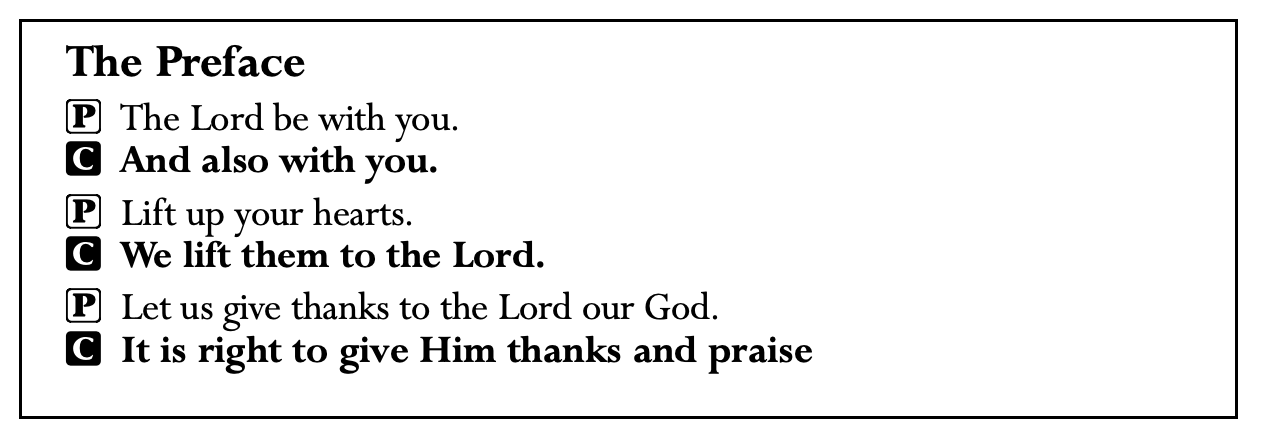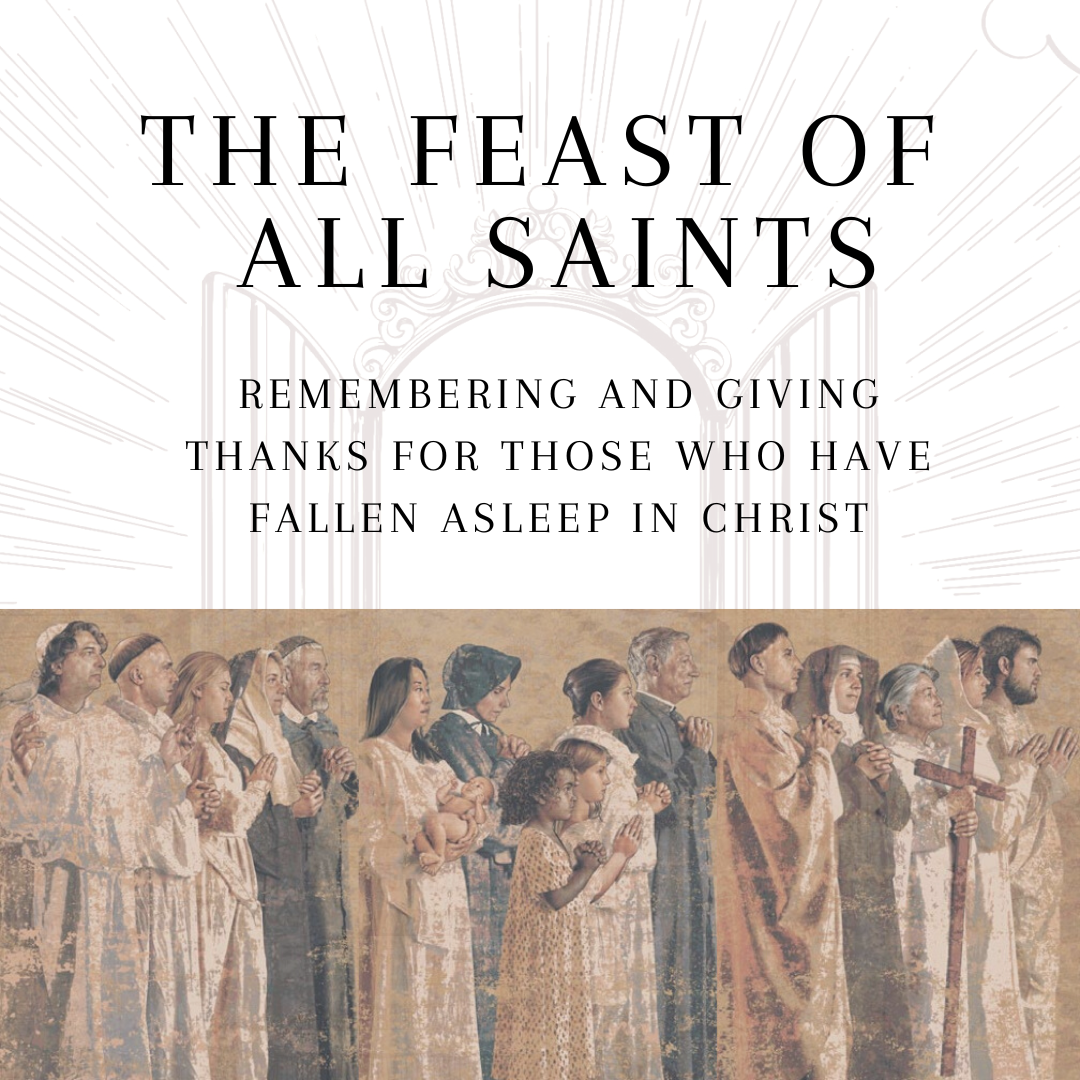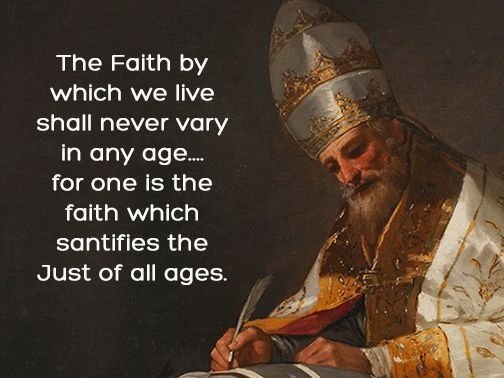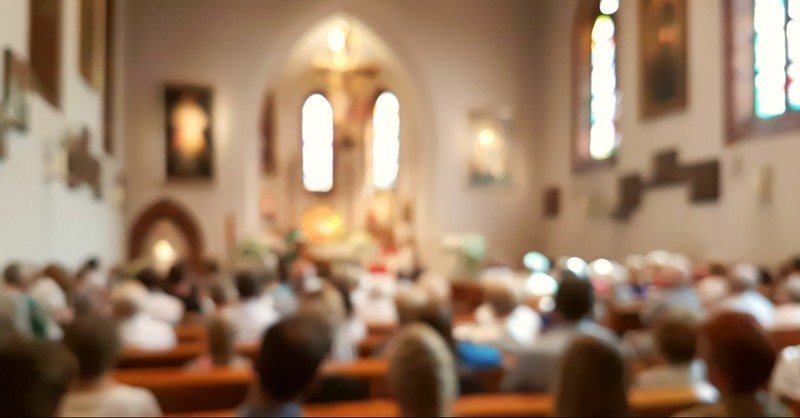Sermon 73
I.The Events Recorded as Happening After the Resurrection Were Intended to Convince Its Truth.
Since the blessed and glorious Resurrection of our Lord Jesus Christ, whereby the Divine power in three days raised the true Temple of God, which the wickedness of the Jews had overthrown, the sacred forty days, dearly-beloved are to-day ended, which by most holy appointment were devoted to our most profitable instruction, so that, during the period that the Lord thus protracted the lingering of His bodily presence, our faith in the Resurrection might be fortified by needful proofs. For Christ’s Death had much disturbed the disciples’ hearts, and a kind of torpor of distrust had crept over their grief-laden minds at His torture on the cross, at His giving up the ghost, at His lifeless body’s burial. For, when the holy women, as the Gospel-story has revealed,brought word of tile stone rolled away from the tomb, the sepulchre emptied of the body, and the angels bearing witness to the living Lord, their words seemed like ravings to the Apostles and other disciples. Which doubtfulness, the result of human weakness, the Spirit of Truth would most assuredly not have permitted to exist in His own preacher’s breasts, had not their trembling anxiety and careful hesitation laid the foundations of our faith. It was our perplexities and our dangers that were provided for in the Apostles: it was ourselves who in these men were taught how to meet the cavillings of the ungodly and the arguments of earthly wisdom). We are instructed by their lookings, we are taught by their hearings, we are convinced by their handlings. Let us give thanks to the Divine management and the holy Fathers’ necessary slowness of belief. Others doubted, that we might not doubt.
II. And Therefore They are in the Highest Degree Instructive.
Those days, therefore, dearly-beloved, which intervened between the Lord’s Resurrection and Ascension did not pass by in uneventful leisure, but great mysteries1 were ratified in them, deep truths2 revealed. In them the fear of awful death was removed, and the immortality not only of the soul but also of the flesh established. In them, through the Lord’s breathing upon them, the Holy Ghost is poured upon all the Apostles, and to the blessed Apostle Peter beyond the rest the care of the Lord’s flock is entrusted, in addition to the keys of the kingdom. Then it was that the Lord joined the two disciples as a companion on the way, and, to the sweeping away of all the clouds of our uncertainty, upbraided them with the slowness of their timorous hearts. Their enlightened hearts catch the flame of faith, and lukewarm as they have been, are made to burn while the Lord unfolds the Scriptures. In the breaking of bread also their eyes are opened as they eat with Him: how far more blessed is the opening of their eyes, to whom the glorification of their nature is revealed than that of our first parents, on whom fell the disastrous consequences of their transgression.
III. The Prove the Resurrection of the Flesh.
And in the course of these and other miracles, when the disciples were harassed by bewildering thoughts, and the Lord had appeared in their midst and said, “Peace be unto you3 ,” that what was passing through their hearts might not be their fixed opinion (for they thought they saw a spirit not flesh), He refutes their thoughts so discordant with the Truth, offers to the doubters’ eyes the marks of the cross that remained in His hands and feet, and invites them to handle Him with careful scrutiny, because the traces of the nails and spear had been retained to heal the wounds of unbelieving hearts, so that not with wavering faith, but with most stedfast knowledge they might comprehend that the Nature which had been lain in the sepulchre was to sit on God the Father’s throne.
IV. Christ’s Ascension Has Given Us Greater Privileges and Joys Than the Devil Had Taken from Us.
Accordingly, dearly-beloved, throughout this time which elapsed between the Lord’s Resurrection and Ascension, God’s Providence had this in view, to teach and impress upon both the eyes and hearts of His own people that the Lord Jesus Christ might be acknowledged to have as truly risen, as He was truly born, suffered, and died. And hence the most blessed Apostles and all the disciples, who had been both bewildered at His death on the cross and backward in believing His Resurrection, were so strengthened by the clearness of the truth that when the Lord entered the heights of heaven, not only were they affected with no sadness, but were even filled with great joy. And truly great and unspeakable was their cause for joy, when in the sight of the holy multitude, above the dignity of all heavenly creatures, the Nature of mankind went up, to pass above the angels’ ranks and to rise beyond the archangels’ heights, and to have Its uplifting limited by no elevation until, received to sit with the Eternal Father, It should be associated on the throne with His glory, to Whose Nature It was united in the Son. Since then Christ’s Ascension is our uplifting, and the hope of the Body is raised, whither the glory of the Head has gone before, let us exult, dearly-beloved, with worthy joy and delight in the loyal paying of thanks. For to-day not only are we confirmed as possessors of paradise, but have also in Christ penetrated the heights of heaven, and have gained still greater things through Christ’s unspeakable grace than we had lost through the devil’s malice. For us, whom our virulent enemy had driven out from the bliss of our first abode, the Son of God has made members of Himself and placed at the right hand of the Father, with Whom He lives and reigns in the unity of the Holy Spirit, God for ever and ever. Amen.
Sermon 74
I. The Ascension Completes Our Faith in Him, Who Was God As Well as Man.
The mystery of our salvation, dearly-beloved, which the Creator of the universe valued at the price of His blood, has now been carried out under conditions of humiliation from the day of His bodily birth to the end of His Passion. And although even in “the form of a slave” many signs of Divinity have beamed out, yet the events of all that period served particularly to show the reality of His assumed Manhood. But after the Passion, when the chains of death were broken, which had exposed its own strength by attacking Him, Who was ignorant of sin, weakness was turned into power, mortality into eternity, contumely into glory, which the Lord Jesus Christ showed by many clear proofs in the sight of many, until He carried even into heaven the triumphant victory which He had won over the dead. As therefore at the Easter commemoration, the Lord’s Resurrection was the cause of our rejoicing; so the subject of our present gladness is His Ascension, as we commemorate and duly venerate that day on which the Nature of our humility in Christ was raised above all the host of heaven, over all the ranks of angels, beyond the height of all powers, to sit with God the Father. On which Providential order of events we are founded and built up, that God’s Grace might become more wondrous, when, notwithstanding the removal from men’s sight of what was rightly felt to command their awe, faith did not fail, hope did not waver, love did not grow cold. For it is the strength of great minds and the light of firmly-faithful souls, unhesitatingly to believe what is not seen with the bodily sight, and there to fix one’s affections whither you cannot direct your gaze. And whence should this Godliness spring up in our hearts, or how should a man be justified by faith, if our salvation rested on those things only which lie beneath our eyes? Hence our Lord said to him who seemed to doubt of Christ’s Resurrection, until he had tested by sight and touch the traces of His Passion in His very Flesh, “because thou hast seen Me, thou hast believed: blessed are, they who have not seen and yet have believed.”
II. The Ascension Renders Our Faith More Excellent and Stronger.
In order, therefore, dearly-beloved, that we may be capable of this blessedness, when all things were fulfilled which concerned the Gospel preaching and the mysteries of the New Testament, our Lord Jesus Christ, on the fortieth day after the Resurrection in the presence of the disciples, was raised into heaven, and terminated His presence with us in the body, to abide on the Father’s right hand until the times Divinely fore-ordained for multiplying the sons of the Church are accomplished, and He comes to judge the living and the dead in the same flesh in which He ascended. And so that which till then was visible of our Redeemer was changed into a sacramental presence, and that faith might be more excellent and stronger, sight gave way to doctrine, the authority of which was to be accepted by believing hearts enlightened with rays from above.
III. The Marvellous Effects of This Faith on All.
This Faith, increased by the Lord’s Ascension and established by the gift of the Holy Ghost, was not terrified by bonds, imprisonments, banishments, hunger, fire, attacks by wild beasts, refined torments of cruel persecutors. For this Faith throughout the world not only men, but even women, not only beardless boys, but even tender maids, fought to the shedding of their blood. This Faith cast out spirits, drove off sicknesses, raised the dead: and through it the blessed Apostles themselves also, who after being confirmed by so many miracles and instructed by so many discourses, had yet been panic-stricken by the horrors of the Lord’s Passion and had not accepted the truth of His resurrection without hesitation, made such progress after the Lord’s Ascension that everything which had previously filled them with fear was turned into joy. For they had lifted the whole contemplation of their mind to the Godhead of Him that sat at the Father’s right hand, and were no longer hindered by the barrier of corporeal sight from directing their minds’ gaze to That Which had never quitted the Father’s side in descending to earth, and had not forsaken the disciples in ascending to heaven.
IV. His Ascension Refines Our Faith : the Ministering of Angels to Hint Shows the Extent of His Authority.
The Son of Man and Son of God, therefore, dearly-beloved, then attained a more excellent and holier fame, when He betook Himself back to the glory of the Father’s Majesty, and in an ineffable manner began to be nearer to the Father in respect of His Godhead, after having become farther away in respect of His manhood. A better instructed faith then began to draw closer to a conception of the Son’s equality with the Father without the necessity of handling the corporeal substance in Christ, whereby He is less than the Father, since, while the Nature of the glorified Body still remained the faith of believers was called upon to touch not with the hand of flesh, but with the spiritual understanding the Only-begotten, Who was equal with the Father. Hence comes that which the Lord said after His Resurrection, when Mary Magdalene, representing the Church, hastened to approach and touch Him: “Touch Me not, for I have not yet ascended to My Father:” that is, I would not have you come to Me as to a human body, nor yet recognize Me by fleshly perceptions: I put thee off for higher things, I prepare greater things for thee: when I have ascended to My Father, then thou shall handle Me more perfectly and truly, for thou shall grasp what thou canst not touch and believe what thou canst not see. But when the disciples’ eyes followed the ascending Lord tO heaven with upward gaze of earnest wonder, two angels stood by them in raiment shining with wondrous brightness, who also said, “Ye men of Galilee, why stand ye gazing into heaven? This Jesus Who was taken up from you into heaven shall so come as ye saw Him going into heaven.” By which words all the sons of the Church were taught to believe that Jesus Christ will come visibly in the same Flesh wherewith He ascended, and not to doubt that all things are subjected to Him on Whom the ministry of angels had waited from the first beginning of His Birth. For, as an angel announced to the blessed Virgin that Christ should be conceived by the Holy Ghost, so the voice of heavenly beings sang of His being born of the Virgin also to the shepherds. As messengers from above were the first to attest His having risen from the dead, so the service of angels was employed to foretell His coming in very Flesh to judge the world, that we might understand what great powers will come with Him as Judge, when such great ones ministered to Him even in being judged.
V. We Must Despise Earthly Things and Rise to Things Above, Especially by Active Works of Mercy and Love.
And so, dearly-beloved, let us rejoice with spiritual joy, and let us with gladness pay God worthy thanks and raise our hearts’ eyes unimpeded to those heights where Christ is. Minds that have heard the call to be uplifted must not be pressed down by earthly affections5 , they that are fore-ordained to things eternal must not be taken up with the things that perish; they that have entered on the way of Truth must not be entangled in treacherous snares, and the faithful must so take their course through these temporal things as to remember that they are sojourning in the vale of this world, in which, even though they meet with some attractions, they must not sinfully embrace them, but bravely pass through them. For to this devotion the blessed Apostle Peter arouses us, and entreating us with that loving eagerness which he conceived for feeding Christ’s sheep by the threefold profession of love for the Lord, says, “dearly-beloved, I beseech you, as strangers and pilgrims, abstain from fleshly lusts which war against the soul6 .” But for whom do fleshly pleasures wage war, if not for the devil, whose delight it is to fetter souls that strive after things above, with the enticements of corruptible good things, and to draw them away from those abodes from which he himself has been banished? Against his plots every believer must keep careful watch that he may crush his foe on the side whence the attack is made. And there is no more powerful weapon, dearly-beloved, against the devil’s wiles than kindly mercy and bounteous charity, by which every sin is either escaped or vanquished. But this lofty power is not attained until that which is opposed to it be overthrown. And what so hostile to mercy and works of charity as avarice from the root of which spring all evils? And unless it be destroyed by lack of nourishment, there must needs grow in the ground of that heart in which this evil weed has taken root, the thorns and briars of vices rather than any seed of true goodness. Let us then, dearly-beloved, resist this pestilential evil and “follow after charity8 ,” without which no virtue can flourish, that by this path of love whereby Christ came down to us, we too may mount up to Him, to Whom with God the Father and the Holy Spirit is honor and glory for ever and ever. Amen.
Source. Translated by Charles Lett Feltoe. From Nicene and Post-Nicene Fathers, Second Series, Vol. 12. Edited by Philip Schaff and Henry Wace. (Buffalo, NY: Christian Literature Publishing Co., 1895.) Revised and edited for New Advent by Kevin Knight. <http://www.newadvent.org/fathers/360374.htm>.







































